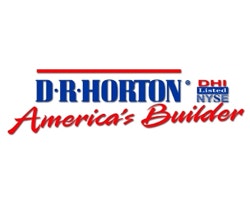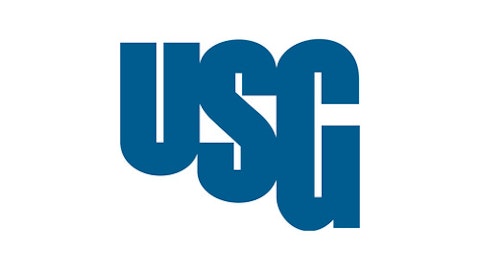Several reports came out in recent weeks that suggest the housing market is showing signs of recovery. Moreover, shares of leading U.S homebuilders such as D.R. Horton, Inc. (NYSE:DHI) or NVR, Inc. (NYSE:NVR) have also rallied from the beginning of the year. But is the housing market out of woods? Let’s examine this issue.
Home prices have risen in recent months: according to one report, the prices of homes rose for ten consecutive months as they have added nearly 8.3% in December 2012 compared to the same month in 2011.

The rise in prices is one indication for the apparent improvement in the housing market. The mortgage rates have also fallen in recent years: the current 30 year Mortgage rate is at 3.53% compared to the 3.98% during the same week last year. This may contributed to the potential rise in demand for homes. Another indication for the improvement in the housing market is the rise in housing starts and building permits.
According to a recent report by the U.S Census Bureau and U.S Department of Housing and Urban Development, the number of housing starts spiked during December 2012 by 12.1% and reached 954k. This number is nearly 37% higher than the same time in 2011. The building permits were also up in December by almost 29% than in December 2011.
The improvement in the housing market wasn’t gone unnoticed as shares of major home builders have rallied in recent weeks: shares of D.R. Horton spiked by nearly 20% since the beginning of the year, shares of Lennar Corporation (NYSE:LEN) by 6.3% and the stock of NVR by 9.5%. The rally of these stocks is related to the sharp growth in revenues of these leading homebuilders in the recent quarter.
But one should consider that the housing market might not be doing so well:
Despite the sharp rise in housing starts the number of new homes sold has decreased in December 2012 compared to November: The sales of new houses fell by 7.3% but rose by 8.8% compared to December 2011. This means the number of houses sold hasn’t risen during the year at the same pace as the number of housing starts.
Let’s examine how several homebuilders are doing in terms of leverage and profit margins.
Many homebuilders, as part of their business, require a high leverage. One indication for the high leverage of these companies is their debt-to-equity ratio. As of September 2012, the debt-to-equity ratio of PulteGroup, Inc. (NYSE:PHM) was at 1.48; Lennar has a ratio of 1.31. D.R. Horton and NVR have much lower ratios of 0.69 and 0.41, respectively. So D.R. Horton and NVR appear to be much less leveraged than PulteGroup and Lennar. The higher leverage didn’t lead to higher profit margins: the operating profitability of NVR reached 10.15% in the last quarter of 2012 – the highest profit margin of the four above-mentioned companies. PulteGroup’s profitability reached 3.75% in the fourth quarter. Both D.R. Horton and Lennar have a profit margin of around 7.3%-7.7%.
But the main factor that many consider is the sharp growth in revenues during the year. If the housing market will continue to show signs of progress, this is likely to reflect in the growth in these companies’ stocks and revenues. So why should you question the evidence for the improvement in the housing market?
FOMC decided at the end of last year to launch its third quantitative easing plan that consist of purchasing $40 billion a month of mortgage backed securities and $45 billion of long term treasuries securities. Moreover, in the recent FOMC meeting, which was held at the end of January, the FOMC didn’t specify a clear time-frame as to when will this asset purchase program end. The FOMC’s intervention in the mortgage market brings into mind Goodhart’s law. This law suggests that once policymakers intervene in a certain market – in our case the housing market – then the changes in it, as indicated by economic reports, become unreliable to assess the progress of this market. In other words, once the government meddles in a certain market, the signs of its recovery don’t necessarily mean this market is improving. This apparent improvement might be superficial and once the intervention will stop the situation might deteriorate again. So just because the housing market is improving could be partly due to the FOMC’s intervention. The Fed’s purchase program raises the demand for mortgage backed securities and lowers the risk attributed to them.
The sharp rise in stocks of leading homebuilders, the spike in revenues and the reports that show the U.S housing market is improving, should be taken with a grain of salt. The FOMC’s market intervention might keep cutting the mortgage rates, but this might turn out to be a short term solution that once it will end could deteriorate the housing market.
For further Reading see:
Why Caterpillar isn’t pulling up?
The author holds no positions in stocks mentioned and does not plan to initiate positions within 120 hours of the posting of this article. This article is to be used for educational, research and informational purposes only and does not constitute investment advice. There are no guarantees, expressed or implied, of future positive returns in regards to the subject matter contained herein. Understand the risks inherent in investing before making the decision to invest or consult an investment professional for more information. Reasonable due diligence has been performed in regards to the information in this article. However, the author expressly disclaims any liability for accidental omissions of information or errors in fact.
The article Is The Housing Market Actually Improving? originally appeared on Fool.com and is written by Lior Cohen.
Copyright © 1995 – 2013 The Motley Fool, LLC. All rights reserved. The Motley Fool has a disclosure policy.




